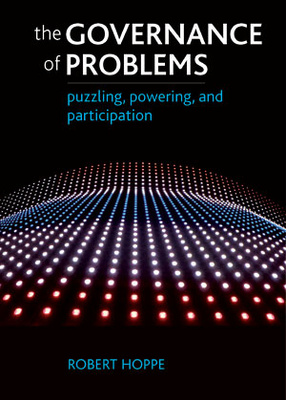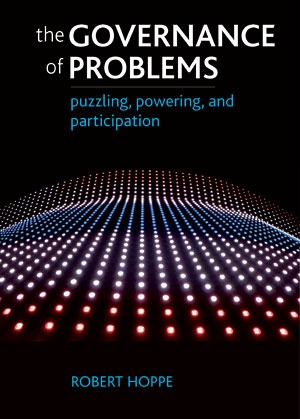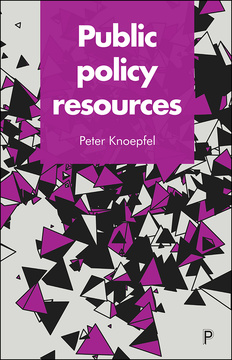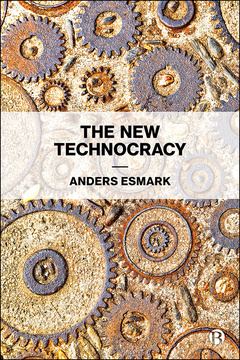Published
Mar 16, 2011Page count
312 pagesISBN
978-1847429629Dimensions
240 x 172 mmImprint
Policy PressPublished
May 1, 2010Page count
312 pagesISBN
978-1847426291Dimensions
240 x 172 mmImprint
Policy PressContemporary democracies need to develop a better governance of problems, as all too often, policy is a sophisticated answer to the wrong problem. This book offers a compelling approach to public policy-making as problem processing, bringing together aspects of puzzling, powering and participation, relating them in interesting and different ways to cultural theory, to issues about networks, to models of democracy and modes of citizen participation. Part of a growing body of work in policy analysis literature, the book is clearly written and accessibly presented, making this an ideal text for academics and postgraduate students.
"Rob Hoppe has long been an important contributor to the field of public policy. Most important, his work has always challenged the conventional wisdom in ways that have led to useful insights for both theorists and practitioners. In this book, he analyzes basic issues related to problem definition and participation. Both problem identification and problem-solving, he shows, can be reflexive and yet pragmatic at the same time." Frank Fischer, Professor of Politics and Global Affairs, Rutgers University, New Jersey, USA
"Hoppe subtly explores the problems inherent in traditional rational policy analysis which claims to be able to speak 'truth to power' exploring the relationship between problem solving ('puzzling') and securing a real impact ('powering'). It is an important contribution to policy analysis." Michael J. Hill, Emeritus Professor of Newcastle University and Visiting Professor at the University of Brighton and Queen Mary College, University of London
Robert Hoppe is full professor of Policy Studies and Knowledge of Twente University's Faculty of Management and Governance, Department of Science, Technology and Policy Studies. His publications concern methodological and institutional implications of deliberative policy analysis, the governance of expertise, and long term policy dynamics and innovation, especially the role of technology.
A problem processing perspective on governance; The governance of problems: a map; Analyzing policy problems: a problem structuring approach; Cultures of public policy problems; Problem types and types of policy politics; Problem structuring dynamics and meta-governance; Making policy analysis doable and reflexive; The plural democracies of problems: a meta-theory; Public engagement and deliberative designs; Coda: responsible and hopeful governance of problems.












